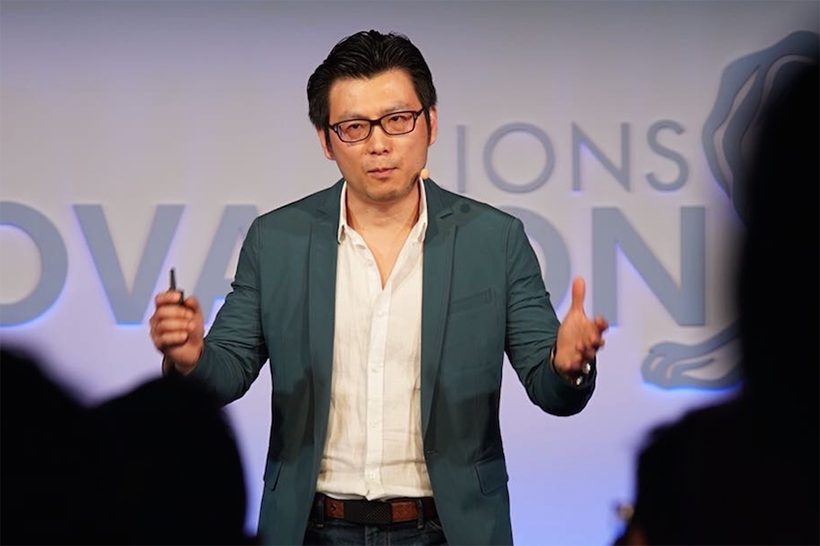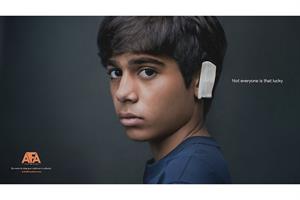To get a clear view on the issues and innovations which will impact the coming year, one only need look at headlines from Cannes Lions. The most captivating of which was the launch of Alibaba’s new data marketing suite—Uni Marketing, which redefines the Chinese digital juggernaut in the eyes of the international marketing community.
"People think we are an ecommerce company," Chris Tung, chief marketing officer of Alibaba Group told the audience on the Cannes stage, "But essentially we are a technology company that utilises data. We have over 500 million shoppers active on the platform and own a media matrix which includes Youku and Weibo. The systems generate a lot of data—there is quality, scale and multidimensionality to it."
Human facets
Introducing the role of data-driven marketing, Tung explained to Campaign how creating new experiences for the consumer should be at the centre of all marketing, including rejuvenating retail real estate. "Targeting and retargeting is a bit like killing mosquitos with a machine gun right now," explains Tung, "yet marketers still have to spend on disparate data platforms because it is such a competitive market."
"Your data needs to be complete," Tung says, "Only from an entire lifestyle can you reconstruct a real human identity. A meaningful interpretation of what they want. That data set is complete only when there is online and offline system integration, which manifests itself as a seamless experience for the consumer."
"We are lucky," says Tung. "to have so much data, and obligated to develop something new for marketing. At Alibaba, we no longer talk about IT. We talk about DT – data technology."
Unified tools
The Alibaba Uni Marketing suite of tools draws on Alibaba’s vast data ecosystem; it analyses live data to empower marketers with behavioural and lifestyle patterns. It is—as Tung described it at Cannes—a new marketing model, solved by a big enough universe of data collection, all interconnected through a system.
"The customer journey is fragmented,"says Tung. "The touchpoint is fragmented. And today, the consumer path in real life is never linear. We tracked the footprint of these users and 72 of their behavioural data points, such as search." 
Alibaba Uni Marketing categorises the over 450 million annual active buyers on Alibaba’s China retail marketplaces with over 500 sentiment tags, which help marketers isolate target groups including outdoor active and Korean show lowers. "These 500 life interest segments are able to serve as basic tagging tools," he explains. "You can now identify a geeky Tommy or an active Lindsay."
The Uni Marketing framework encompasses four elements: visibility of consumer brand relationship data and diagnosis, diagnosis and input for brand strategy, media planning and ad serving, and customer relationship management, "with the data bank at the bottom acting as the hub."
Tung is looking to create an understanding of the consumer in a "3D fashion", which draws on "multidimensional data points around their lives." He adds, "The data-driven system will know the customer better than they know themselves. They will still be the master but they are going to enjoy being serviced in a better way."

Tung anticipates the creative process shifting along with these new capabilities. "We’ll no longer run a campaign by first developing a creative," he explains. "Running concept or copy tests will be passé. This has a profound impact on creative work; it is no longer a static effort. It will become a combination of push and pull."
Creatives, Tung says, will now be able to develop work that hones in on key consumer segments and base their decisions on these sentiment tags, whether it’s the type of skin they have or the depth of their interest in football. Tung says, "Our data says that churn rate can increase by 50 percent if you work this way—by developing creative strategy that cannot be solved without data."
Mindset shifts
On top of the creative changes anticipated by the release of Uni Marketing tools to the agencies, Tung also sees more changes in the retail and commerce space. "Commerce is no longer about shelf space," he explains.
The impact of the upwardly mobile trend of content marketing has hit ecommerce. "A lot of content-driven product does very well, whether that’s through live streaming, articles written by KOLs or ranking the most popular brands. Consumers love to see and understand how they can upgrade their consumption and change their lifestyle. Today, the distance between a sales campaign and a sales result is just one click away."
"Our goal is to rejuvenate brands with an integration of online and offline retail through digital transformation. The real-time ROI is not a penalty but a result. Creatives will be able to measure—and tailor—the power and value of their efforts, and not just by winning Cannes awards," Tung says.
Source: Campaign Asia-Pacific










